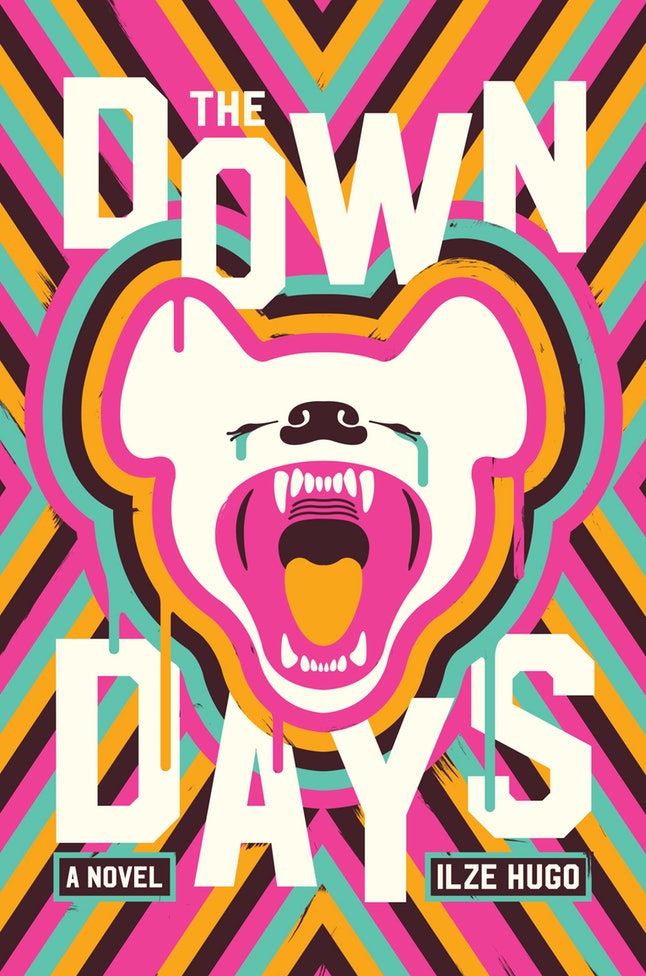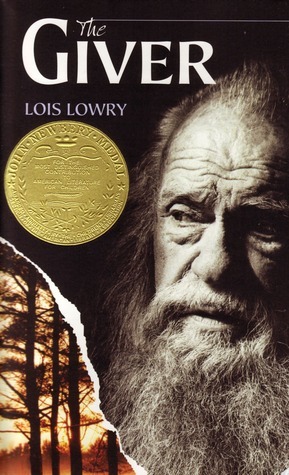
The Fault Lines of Society:
Inequality in Dystopian Novels
In the haunting worlds of dystopian literature, inequality reigns supreme. Societies are divided by class, race, and power, as depicted in some of the most gripping new dystopian novels, like The Down Days by Ilze Hugo, The Companions by Katie M. Flynn, or The Memory Theater by Karin Tidbeck. From towering skyscrapers of privilege to the desolate wastelands of the oppressed, these stories vividly illustrate the consequences of unchecked inequality. This blog is a short discussion of dystopian worlds with themes of inequality, shining a light on the darkest corners of societies built on injustice.
Really, some of my favorite novels have revolved around this inequality theme. I grew up reading The Giver by Lois Lowry, and while I didn’t understand it completely, I knew there was something wrong with a utopian society where people are assigned roles that dictate their entire lives, illustrating the dangers of enforced equality. Perhaps this is because I realized I was different and none of the traditional female roles of society fit with my more butch mentality. So, The Giver was by far very important and revealing to me as I related to the main protag Jonas who didn’t fit in with any of society’s norms. There are so many things that felt wrong about that utopia. But I finally figured out my world so that one looks a little less suspicious.
I also love watching movies like In Time, a 2011 science fiction action film directed by Andrew Niccol where everyone has a digital clock on their forearm that counts down how much time they have left to live. Time becomes the currency, with people trading and working to earn more. The rich have thousands of years of life and the poor run out and die. Or the movie Elysium, a 2023 film that controls social classes by separating the wealthy from the poor. Elysium is the sky space station providing a stark division between the wealthy inhabitants and the impoverished population of Earth. The people of Elysium have access to advanced medical technology that can cure any illness, while those on Earth suffer and die from preventable diseases due to a lack of medical resources. The main protagonist is a reluctant hero, challenging the status quo and attempting to bring equality to the two worlds.
Novels that use inequality as a theme often reflect real-world issues–social, political, and economic issues–in today’s world. By exaggerating or distorting it in a fictional setting, authors can highlight its effects and consequences, making readers think critically about the inequalities present in their own societies. The theme is also closely tied to power dynamics of systems of oppression, authoritarian governments, or corporate control. This theme helps create conflict, which is the lifeblood of storytelling. The clash between the haves and the have-nots provides ample material for plot development. Compelling narratives arise of quests for justice, struggles of survival, moral dilemmas, internal conflicts, and opportunities for growth and change.
One last note, my favorite area of dystopian novels is the world-building. With the theme of inequality, you can clearly see the very fabric of a fictional world is altered. Think of SnowPiercer and that train that has the poor at the end, and the rich in front. Or The Giver with its principle of Sameness, where everything is carefully controlled to eliminate differences and conflict. The uniformity of the houses, the clothing, and even the landscape reinforce the idea of a society where individuality is suppressed in favor of conformity. How cities are designed, how resources are distributed, the boundaries that form, and the limited information and experiences are all factors that help develop the fictional worlds of these novels.
In my upcoming novel Trena, the Memory Reader, releasing in 2024, the main protagonist is gifted an unknown skill by her god becoming a ‘favored’ of her people. She is forced to leave her small village home and travel across the lands of her world to figure out why she was chosen and how to use her gift. While she is innocent about her world, she learns that oppression is a factor and inequality is rampant.
Here is a sample:
Trena opened her eyes from where she lay hidden, as she listened to the conversation take place at the small fire camp with the two hostage holders and now only three rope-tied prisoners. In the darkness of the night, she lay flat in the high grass a good thirty feet from sight, but she could still see the dark stains on the bigger one’s shirt that told the story of blood flowing. And she’d listened to the beating he’d given. She wiggled even further backward until the curve of the hill covered her. Moving slowly, she circled around to try and find the fourth villager who’d been dragged away.
In the darkness, she found him, mostly from the gurgling sound of wet breathing. He lay in a curled ball and a dark wetness leaked out of his nose as she let the moonlight help her sight. She tentatively touched his shoulder and realized the rope was still tied around his neck. She quickly fetched her knife and cut through it. His roped hands were freed as well. Once loose, he curled further into the ball, with a moan.
“May Cavel’s grace wrap you in his arms.” Trena consoled the poor man with the only comfort she could muster.
His eyes opened instantly to her whispered words.
“Not yet.” He hissed and coughed.
Trena scooted back away and held her staff in front of her.
“No…fear, girl. I’m moving to the plains soon.” He coughed and closed his eyes once more.
Trena noticed the way his hands cradled his stomach, which seemed swollen and dark with shadow.
“He has broken me. I bleed inside. It will not take long for Cavel’s horses to trumpet.”
The man’s dark eyes opened, and Trena found the shine of a fevered clarity.
“Is there a blessing you’d like? I am not a shamt but…”
“No, youngling. Or should I say, brave woman? I have heard you follow us for the last two hours. The vibration of the hoofs was evident as we rested.”
Trena looked over her shoulders expecting to see the men reaching for her.
“They would not know. They rode as well. Only the earth speaks Cavels beat.”
Trena gave a quick nod and bit her lip. “I… I could not leave you to…”
His pain-filled expression made her look away, embarrassed that she had failed. He was dying.
“I need not a blessing. But for truth, I have a promise to hold.” He seemed to grimace, from the pain or from the words he spoke, Trena was unsure. “As I will not be alive to hold it, I must ask to pass it to you.”
Trena frowned.
He continued. “Those men took a stone from me. A white stone. It held a promise. I cannot…” He broke into a coughing fit.
Trena swallowed and licked her dried lips.
“Perhaps I can use my ‘sight’ to try and read your vision? I have a gift of such from Cavel.”
The man squinted in the darkness and seemed to suddenly see the visor across her face. He closed his eyes and breathed in some pain. When he opened them again, he was resolute.
“Do it. I have but moments left.”
Trena pushed back the visor and looked into his eyes.
In that moment they collided she found his mind pristine clear, focused solely on a woman. A beautiful woman with long flowing auburn hair and green eyes. She was so pretty Trena caught her breath. In a few moments, she saw an exchange, the white stone he’d been given, for some coins, from a robed Mage. The stone was embedded with a single strand of long red hair of the woman’s, taken without her knowledge. The spell ensured she would remain free of any other until his return from his travels and gave it to her. Trena felt anger build from the deceit. How dare he bend the woman’s life to suit his desire. She almost broke away from the vision as she felt he was not worthy of granting him such a gift. But then she watched as one of the foreign brutes roughly tethered the man. His stone was taken and put in a metal container by his capturer. Then the cruelty began. Fisted back cuffs, stomach punches, continuous unrelenting punishment. Trena tried to swallow through the pain and suffering, only wincing and gasping sounded from her as she watched the ugly enjoyment of the act revealed on the one that produced the pain. She could not plug her senses from this man’s helplessness. While he lied with his deceit, he did not deserve such a punishment. He remained tied throughout the beating, denying him the ability to defend or fight. That mindful cruelty was beyond any she’d ever witnessed.
She shuddered at the horror and tried to tamper down the awful visage by remembering some peace from her life in the beautiful high hills and the low murmur of the sheep she’d often enjoyed as she roamed on the flower-covered mountainside of her home. The visions retelling of his beating seemed less cruel against that of her pure love of her mountain living. When she could take no more of the evil being dealt, she jerked her visor down and broke the vision.
“The fields of the mountain are lovely.”
Trena was puzzled at his words. With her ‘sight’ open she had somehow revealed her own to him. This was not something she wholly understood but he seemed calmer, more still.
You can find this book released in November on Amazon. Sign up on my email list for prerelease purchases.
In conclusion, with dystopian worlds, it becomes evident that their allure lies not just in their fantastical settings but in their striking reflections of our own reality. The inequalities portrayed in these worlds serve as cautionary tales, urging us to question the systems and structures that perpetuate division and oppression. Through the author’s lens of these imagined societies, we are prompted to consider the consequences of unchecked power, the importance of empathy and solidarity, and the possibility of forging a more equitable future. Readers should let these story narratives serve as both warnings and inspirations, guiding us toward a future where inequality is not accepted but actively challenged and dismantled.
Please read and review my serial publishing novel, Sparrow’s Legacy, on Kindle Vella. You can read the first three chapters free on Amazon by searching for “Sparrows Legacy Kindle Vella” or clicking here. Or you can find my debut SFF novel, the space opera Drayton’s Discoveries. For the love of all fantasy and SFF, please leave a review. Feedback is my sole sustenance for writing. Don’t let me starve. If you liked this blog, please be sure to sign up for future blogs on my site jlnichauthor.com.
For those trying the writing game, I want to give a quick shout-out to PLOTTR software. I’ve found it has really improved my writing game and increased my efficiency tremendously. It is my new favorite writing aid. Use any of my affiliate links below and I might get a small commission. Thanks.
Check out my YouTube channel for PLOTTR videos @jlnichauthorsff
Joseph Michael’s Learn Scrivener Fast e-course
Please subscribe to my website if you want to be notified when I’ll be publishing or to get free samples of my work.
JL Nich, Science Fiction Fantasy Author


